Long before we had terms like “biohacking” or “nervous system regulation,” traditional cultures were already exploring how the natural world could soothe an overburdened mind. Among the botanical treasures passed down through time, ashwagandha has remained one of the most quietly powerful.
Harvested from the dry soils of India and North Africa, this gnarled root wasn’t flashy or fast-acting. But its reputation was clear: ashwagandha offered a kind of calm that didn’t sedate—it restored. A steady, enduring calm for the tired, the tense, and the emotionally taxed.
A Nervine Root for the Weary
In Ayurveda, ashwagandha is referred to as a Rasayana—a herb that builds strength over time. More specifically, it's used as a nervine tonic, prescribed for people experiencing chronic stress, low resilience, or ongoing mental fatigue. These weren’t fleeting bouts of nervousness, but the slow-burning tension that erodes energy and equilibrium over weeks or years.
Often blended into warm milk or ghee, ashwagandha was traditionally taken at night to prepare the mind for rest and recovery. Rather than forcing the body to sleep, it gently guided the nervous system toward a state of repair—what we now refer to as parasympathetic dominance.
More Than Myth: What Lies Within the Root
The therapeutic strength of ashwagandha isn’t folklore—it’s chemistry. And while this herb isn’t commonly promoted for its nutrient content, its root is densely packed with bioactive compounds that explain its calming influence.
Withanolides – These are the hallmark molecules of ashwagandha. Structurally similar to steroids, they modulate the brain's stress response, particularly via the GABA system, which plays a central role in relaxation and sleep.
Alkaloids – Compounds like withanine and somniferine act as gentle relaxants, contributing to its mood-soothing effects.
Sitoindosides & Acylsterylglucosides – These support resilience by protecting neural cells from oxidative stress, especially under chronic pressure.
Minerals & Amino Acids – Ashwagandha also offers small amounts of iron, potassium, calcium, and amino acids such as tyrosine, which may help support dopamine production and mental clarity.
What emerges is a plant with both subtle nutrient support and profound phytochemical action—grounded in both tradition and evidence.
Not a Quick Fix, But a Deep One
Unlike pharmaceutical sedatives, ashwagandha doesn’t override the nervous system; it works with it. Its role is not to switch off your stress response entirely, but to rebalance it—to help the body remember how to return to rest after demand.
For people dealing with mild anxiety, chronic tension, or emotional fatigue, ashwagandha provides a gentle yet consistent ally. It's a reminder that true calm isn't something we force—it’s something we cultivate.
Organic Ashwagandha CapsulesA powerful supplement for your health and wellness. Order Now |

|
Frequently Asked Questions
What does Ashwagandha do for the body?
Ashwagandha is a traditional adaptogen known for helping the body manage stress. It may support hormone balance, improve energy levels, reduce anxiety, and enhance sleep quality. Some studies also suggest benefits for brain function, endurance, and immunity.
Is Ashwagandha allowed in Australia?
Yes, Ashwagandha is approved for use and sale in Australia as a listed ingredient in supplements. At Forest Super Foods, we ensure our Ashwagandha is 100% organic and compliant with Australian standards and regulations.
What happens if I take Ashwagandha daily?
Many people take Ashwagandha daily for long-term stress support, improved mood, and better sleep. Most benefits are noticed gradually over weeks. Always follow the recommended dose and consult a healthcare professional if you're on medication or managing a health condition.
Does Ashwagandha have side effects?
Ashwagandha is generally well tolerated, but in some cases, it may cause digestive upset, drowsiness, or hormonal effects. It's not recommended during pregnancy, and people with thyroid conditions or autoimmune disorders should consult their doctor first.
Does Ashwagandha make you sleepy?
Ashwagandha doesn't act like a sedative, but it may promote relaxation and help reduce overactive stress responses. This calming effect may support deeper sleep at night without causing grogginess during the day.
How long does it take for Ashwagandha to kick in?
Most people start noticing effects within 2 to 4 weeks of consistent use. However, it can vary depending on your health, dosage, and what you're using it for (e.g., stress, sleep, energy, or hormones).



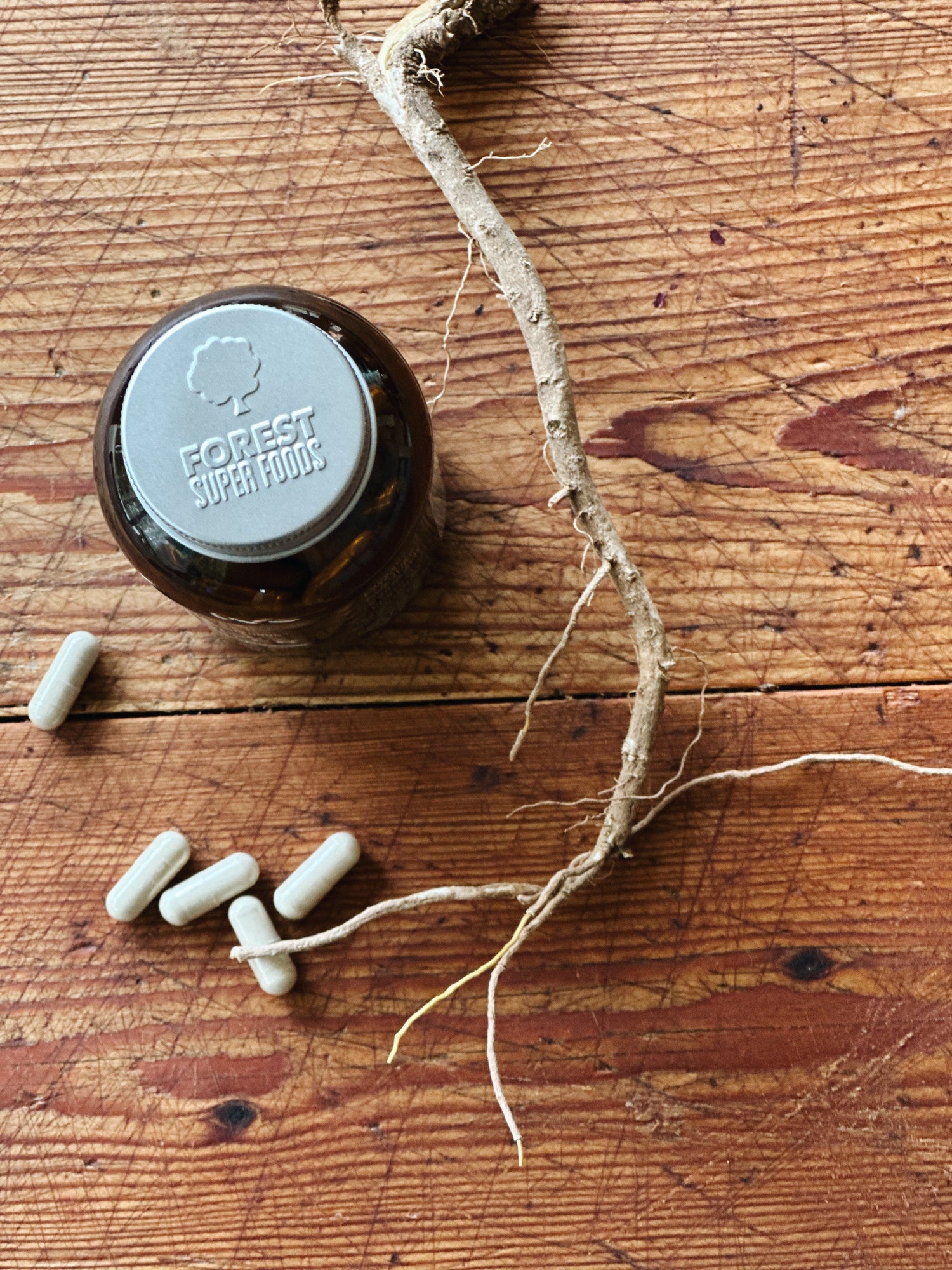


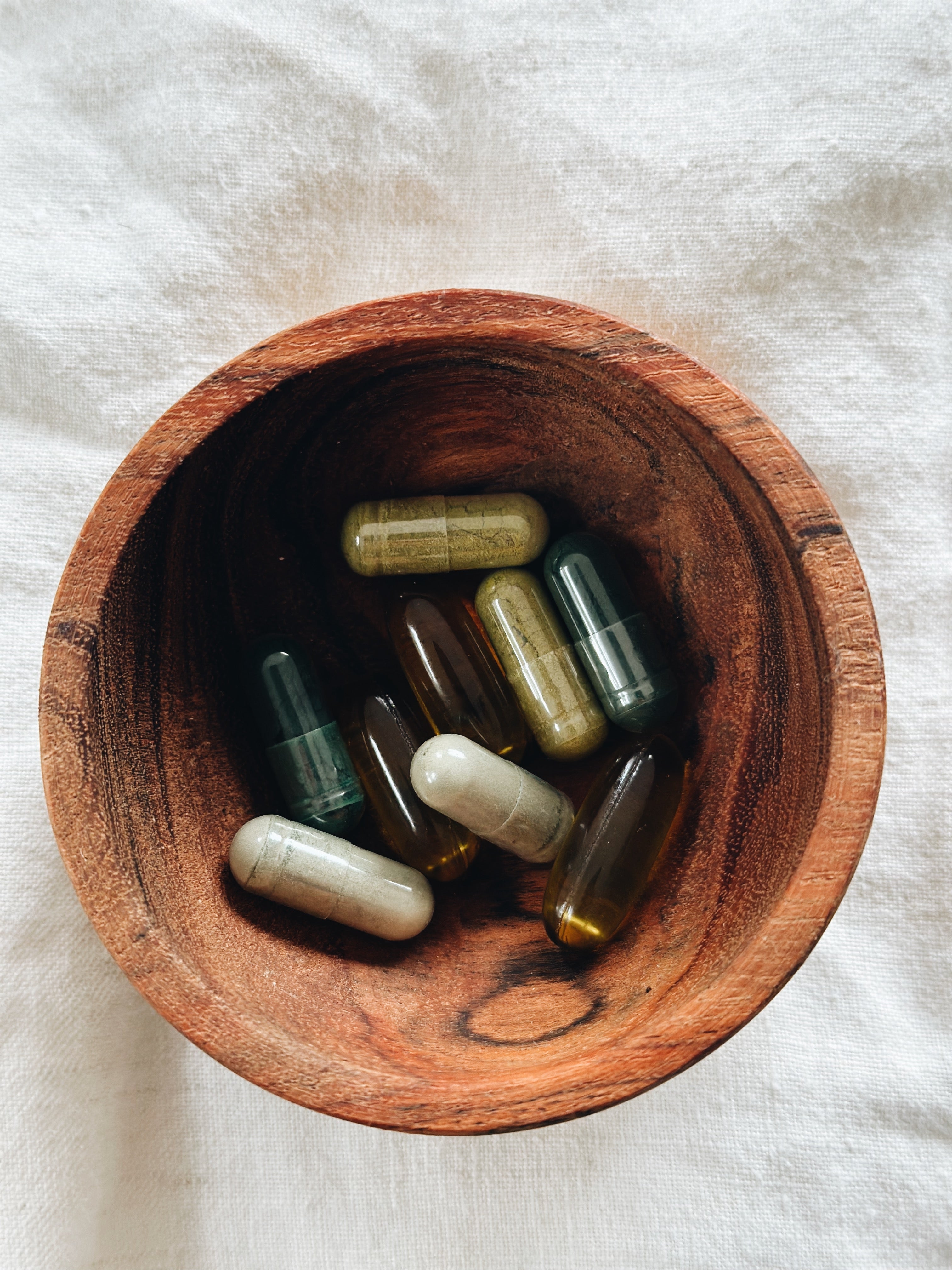
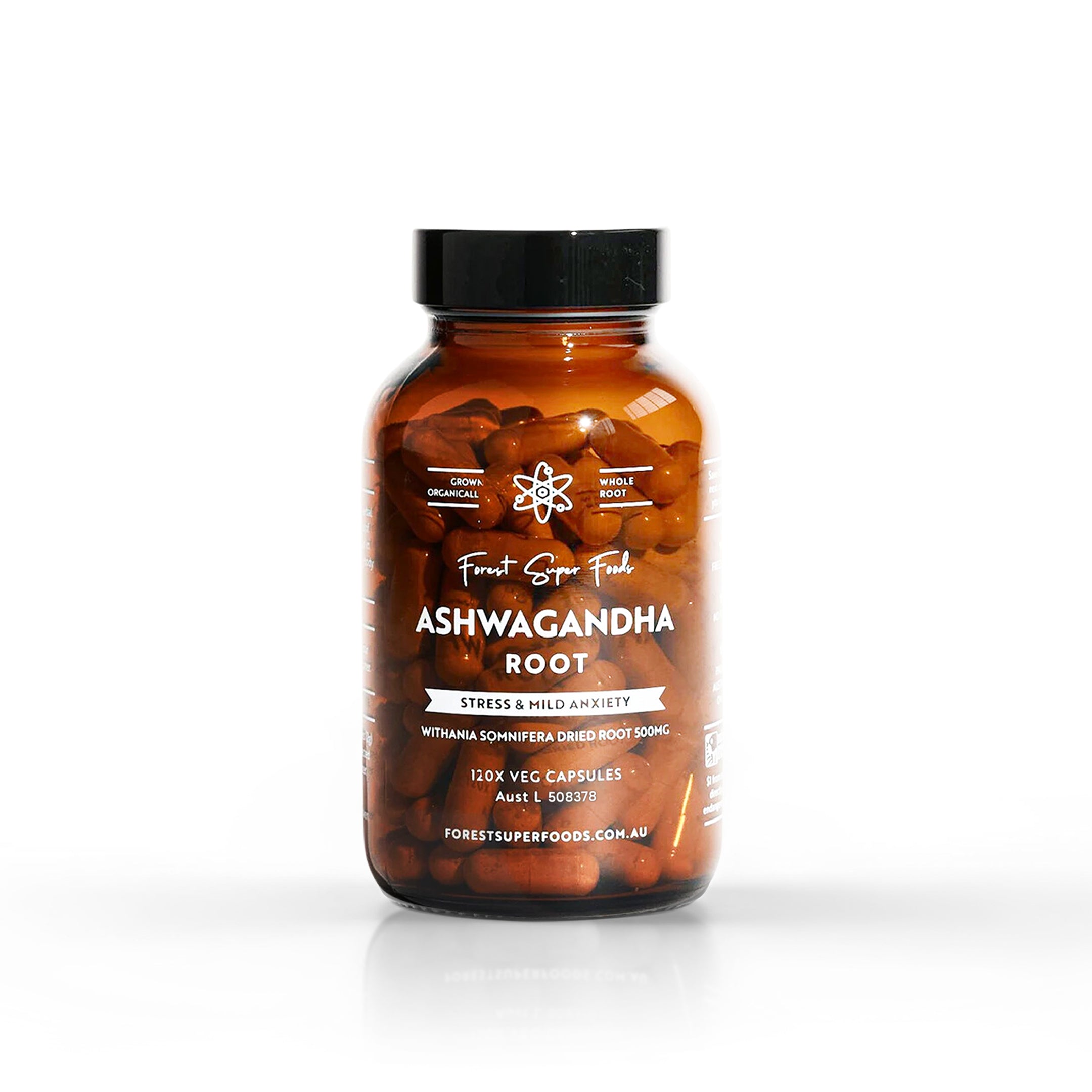
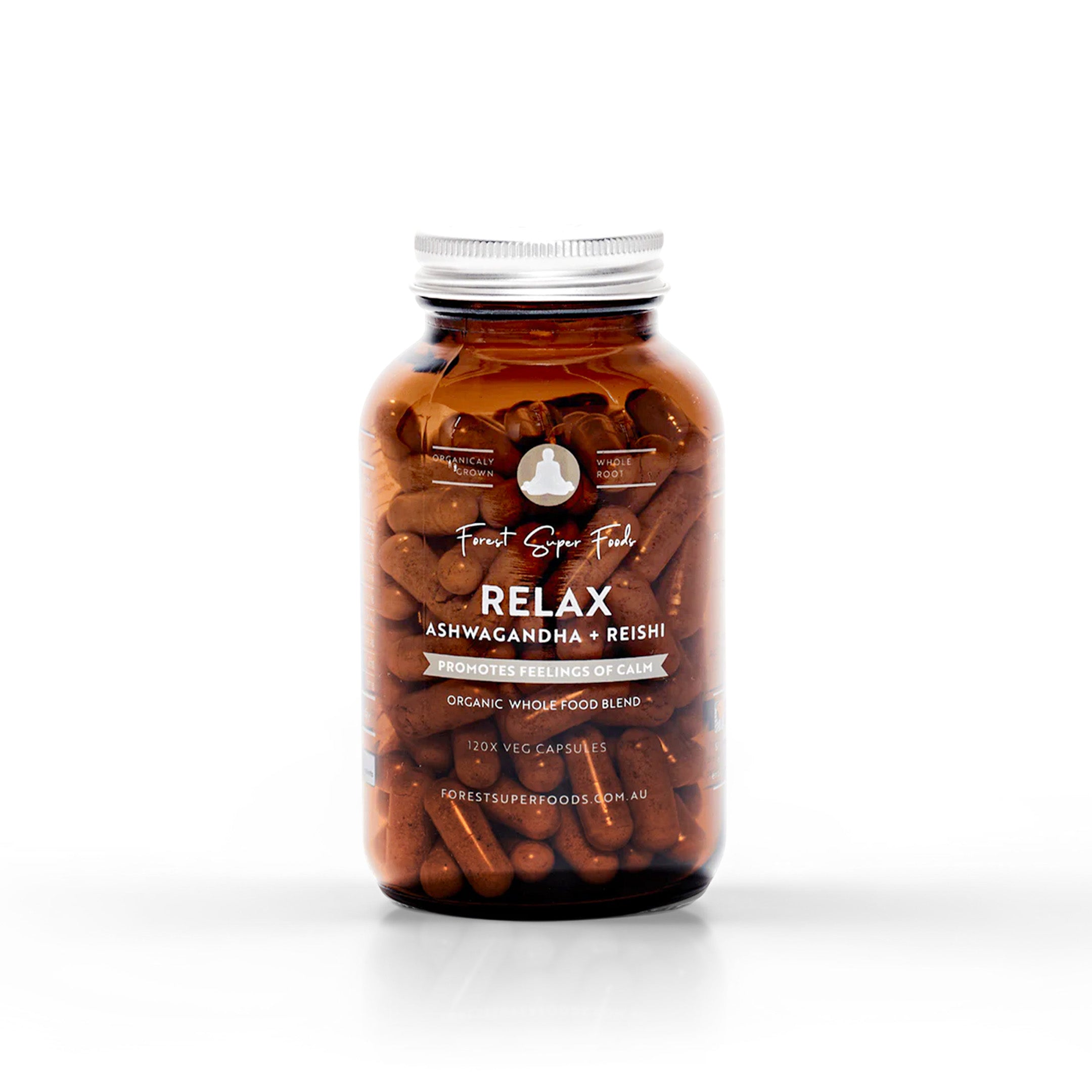
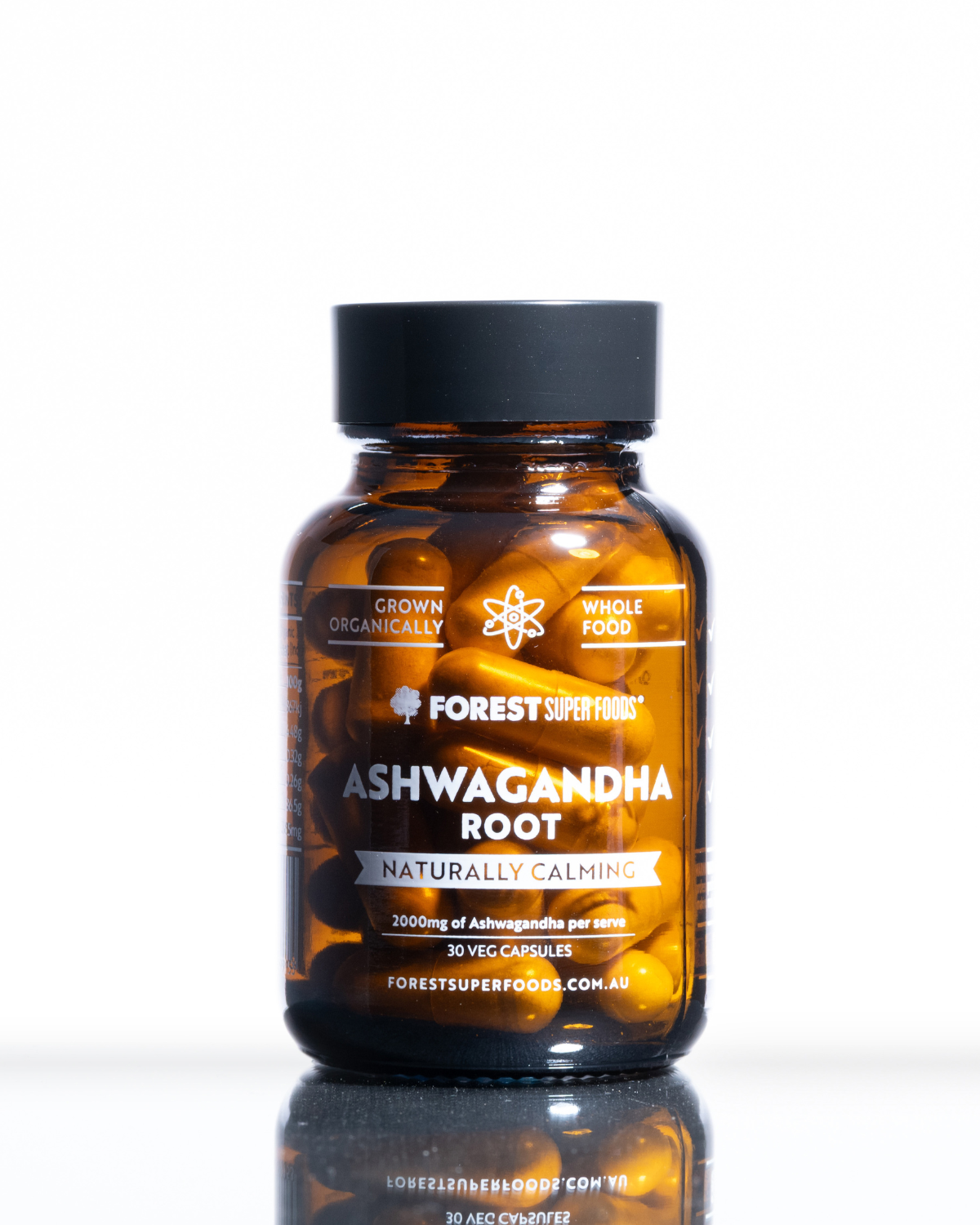
Leave a comment
All comments are moderated before being published.
This site is protected by hCaptcha and the hCaptcha Privacy Policy and Terms of Service apply.